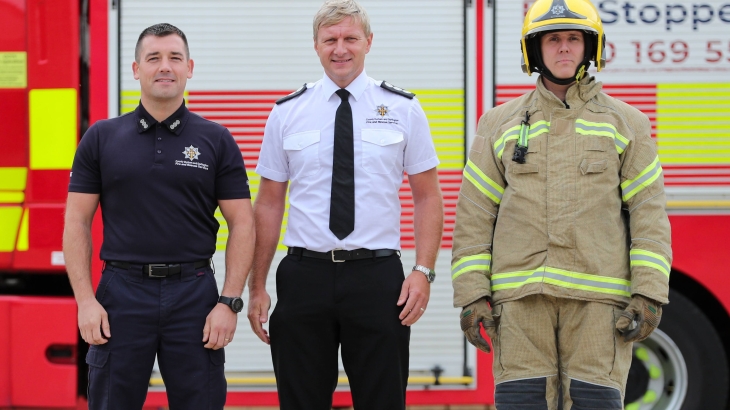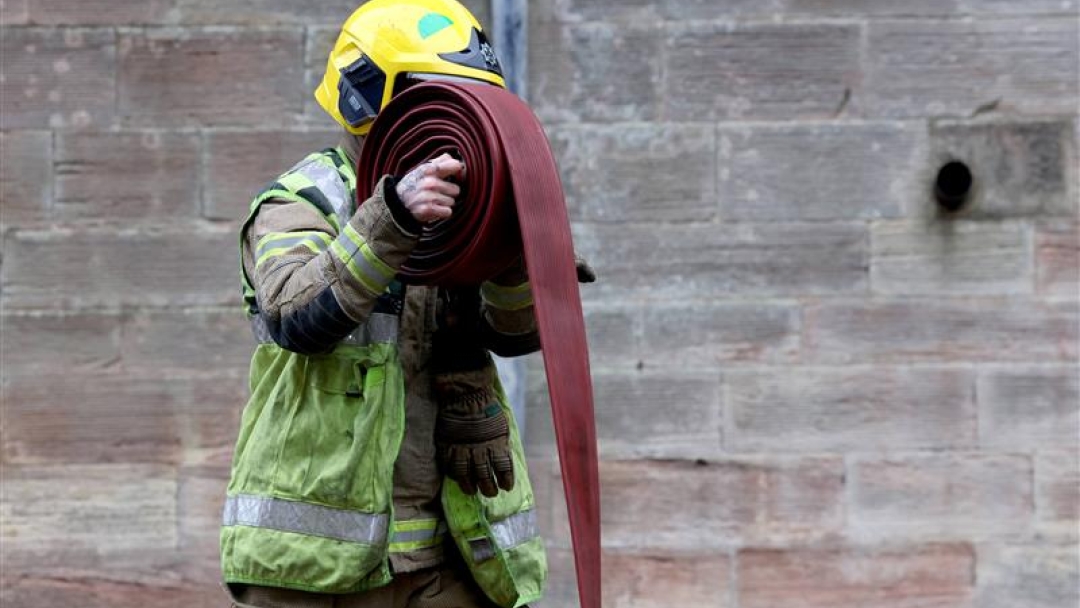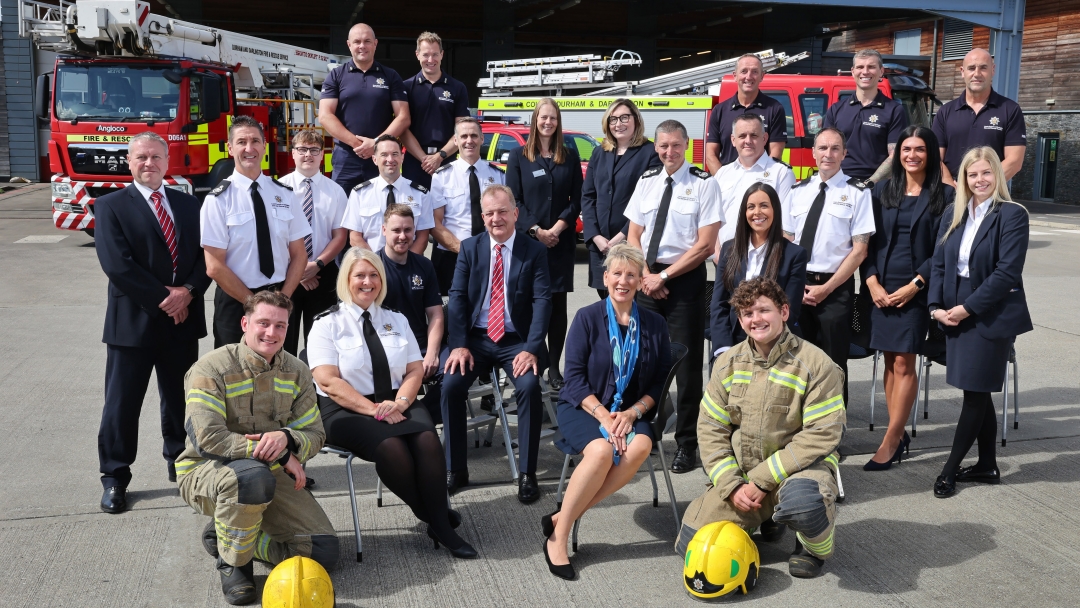Station Manager Billy McAloon, Station Manager Kev Bell and Firefighter Stephen Blakey.
If your child suffered a burn, would you know what to do?
That’s the question firefighters from County Durham and Darlington Fire and Rescue Service (CDDFRS) are asking parents ahead of National Burn Awareness Day (Wednesday, October 15).
The annual day, championed by the British Burn Association and Children’s Burns Trust, aims to raise awareness of how to treat burns and the ways people can prevent them from happening in the first place.
It comes as stats from the Children’s Burns Trust state that 9,244 children in the UK were burned or scalded in 2024.*
Firefighters and paramedics are urging people to remember the three C’s when it comes to treating a burn – COOL it down with running water for 20 minutes, CALL 999 or 111 if it is larger than a 50p and COVER it loosely with clingfilm.
Kevin Bell, Station Manager of Community Safety, said: “Everyday activities such as filing a hot water bottle, making a cup of coffee, or using hair straighteners can result in people suffering serious burns.
“We always advise parents to keep these out of reach of children but appreciate that accidents can happen.
“That’s why it is really important that people know how to treat a burn.
“Getting essential first aid early on can make a huge difference to recovery times and the severity of scarring.
“If someone receives a burn or scald, the priority is to cool the burn as quickly as possible by running cool tap water over it for 20 minutes.
“Remove any clothing, jewellery or nappies firmly stuck to the wound and then cover the burn loosely with cling film.
“For severe burns larger than a 50p, call for help by ringing 999, 111, or your GP.”
Consultant paramedic, Daniel Haworth from North East Ambulance Service, said: “Burn injuries can have lifelong consequences, but many accidents are preventable with simple safety measures.
“Awareness of first aid, quick action and accessing the right care can make all the difference if an accident does occur.
“If you are unsure, please call 999 in an emergency or use 111 online."
How to reduce the risk of burns
• Keep kettles, irons, hair straighteners or wires away from children.
• Always have pans at the back of the hob when you're cooking and turn the handles in.
• Never leave cooking unattended.
• Don’t use a hot water bottle more than two years old (check the flower symbol on the bottle to show when it was made) and never fill a hot water bottle with boiling water.
• Keep hot drinks out of reach of young children never put them on a tablecloth that a small child can reach and pull it down.
• Always run cold water into the bath first and test the temperature before getting in.
First aid for burns and scalds
• COOL the burn with running cool tap water for 20 minutes. Remove any clothing, jewellery or nappies unless firmly stuck to the wound. Do not apply ice, butter or toothpaste.
• CALL for help – NHS 111 or local GP for advice. In an emergency dial 999.
• COVER the cooled burn with loose cling film or a clean, non-fluffy cloth. Keep the patient warm.
*National Burn Awareness Day information from the Children’s Burns Trust: NBAD Toolkit 2025


